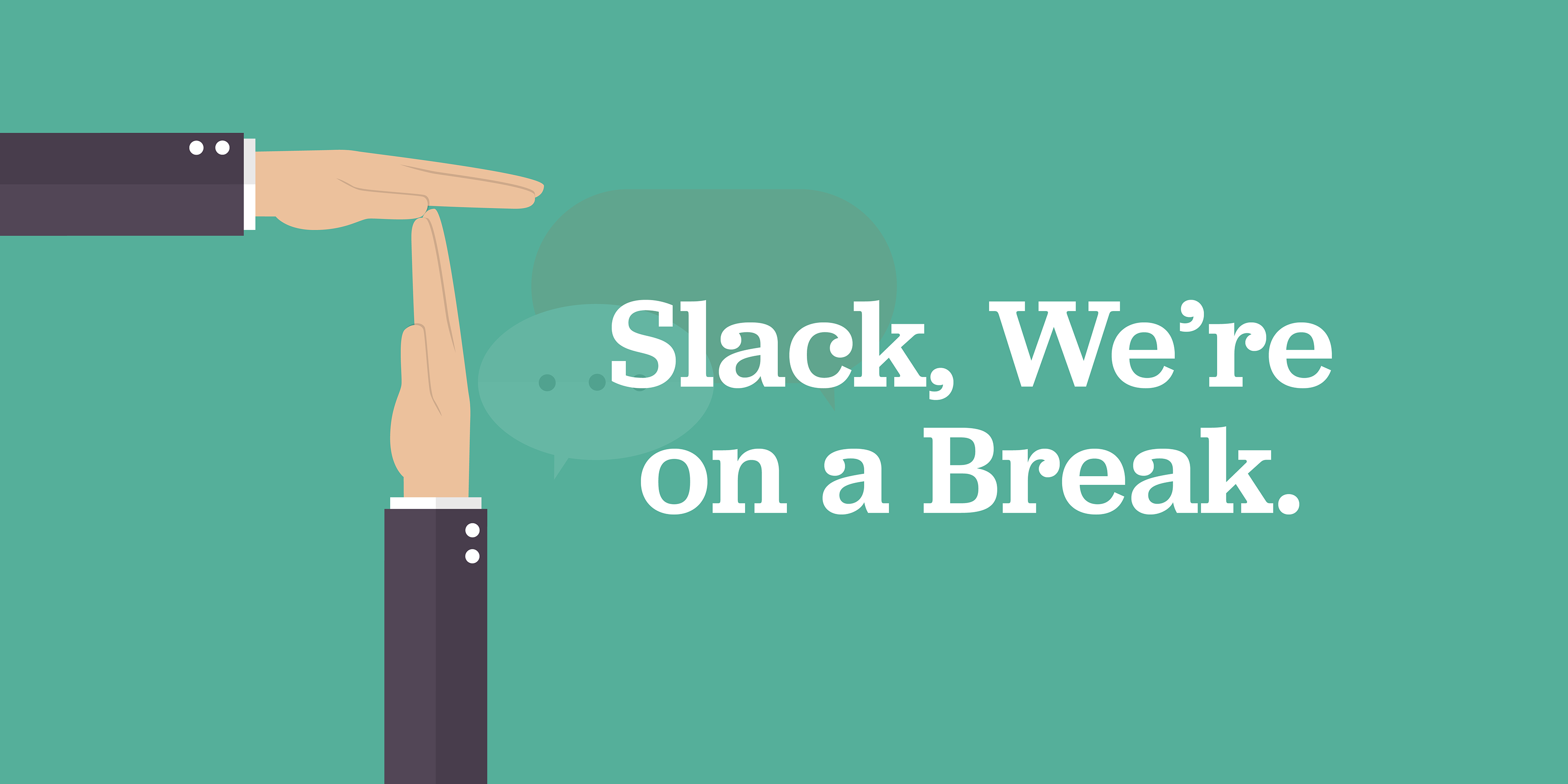
About five years ago we started using Slack. It was the hot new thing on the scene and all the cool kids were using it.
Slack’s motto is “Where Work Happens". Okay, that sounds great, right? Who can argue with that? We jumped on the Slack bandwagon and channels proliferated like little bunnies. There were channels for teams, for projects, channels highlighting our vacations, favorite recipes, when we’d be in/out, boasting all the cute Arc-pets, and so many more. There were lots and lots of channels.
Ping, ding, buzz, ping, buzz - 24/7.
The last day I used Slack, I recall seeing a handful of Slack notifications after finishing a meeting. Something happened. I felt my stomach tighten and I remember feeling stressed. The stress rippled through my entire body and I felt overwhelmed.
So, if Slack was making me feel this way, were others feeling stressed from Slack too? It turns out yes, they were. In fact, according to a Mashable article by Rachel Kraus, “The understated double ping hits me with a jolt of excitement, a swooping stomach, and even a bit of relief....just as a song has the power to take you back to a particular moment in time, the sounds emitted by our connected devices can trigger memories, thoughts, and feelings, too.” Sometimes, however, these memories, thoughts, and feelings may not be positive.
Slack had suddenly become something that we couldn’t live without. Or, could we?
Two weeks ago, we did something radical. We decided to take a break from Slack.
Here are some of the reasons why we dropped Slack
- Constant interruptions. Hello, continuous partial attention, aka multi-tasking. We were frustrated at the constant interruptions that derail you from doing important work and spread you thin.
- Discourages face-to-face time. We’re already so disconnected, behind our screens. With Slack, you don’t “need” to talk to someone face-to-face. Everything can be done via Slack.
- What tool, when? More than once we struggled with how to effectively use Slack asking questions like, “When is it appropriate to Slack someone vs. email them or just walk over to their desk?” It can be tough to decipher. Hint: Only use a chat tool like Slack when you need an immediate response or real-time is essential.
- More inboxes to check. Slack quickly became yet another inbox to check. Wasn’t Slack supposed to kill email? Did it kill email or just move it to a new platform? Sometimes it felt like an all-day meeting.
- Files scattered and tough to find. It’s so easy and tempting to share important documents in Slack. Beware, over time, you’ll forget where/how you shared that document and you won’t be able to find it. It can also be easy to miss important information especially if it’s buried in a thread.
- One more tool. It’s redundant. We have similar functionality in other apps we’re already using - Google Chat, Zoom and Basecamp 3.
- The price tag. While the 8 USD per active user per month, billed monthly, seems like a screaming deal, it quickly adds up. This may not seem like a lot of money but the old adage, “death by one thousand cuts” is completely relevant here.
- 24/7 always on availability. Email already allows us to work and send messages late into the night or early morning, but Slack turns up the volume and makes it even earlier to fire off quick quips and questions.
It’s not that I dislike Slack. I like seeing people’s pets, vacations, and the latest funny meme. In the right situation, it can be an invaluable tool.
It’s got a lot of good things going for it. Slack integrates with essentially everything out there. It’s super helpful for connecting teams with remote workers. Our team liked how Slack clearly differentiated internal communication vs. client-facing messages. Slack’s mobile app was also a hit when people wanted to check on stuff when they weren’t at the office.
For us, the positives simply didn’t outweigh the negatives.
We’ve made some significant changes so far in 2020 - migrating to Basecamp 3 (yay!), implementing a new password management tool (double yay, Thanks Matt!!), and creating a new ritual when we launch a site (why weren’t we doing that already?), and now taking a break from Slack, to name a few. Change can be hard but it’s also exciting and aligns with our core value of Evolution. After all,
"Change is the only constant in life."
Thanks, Heraclitus.
I’m looking forward to what the future brings!